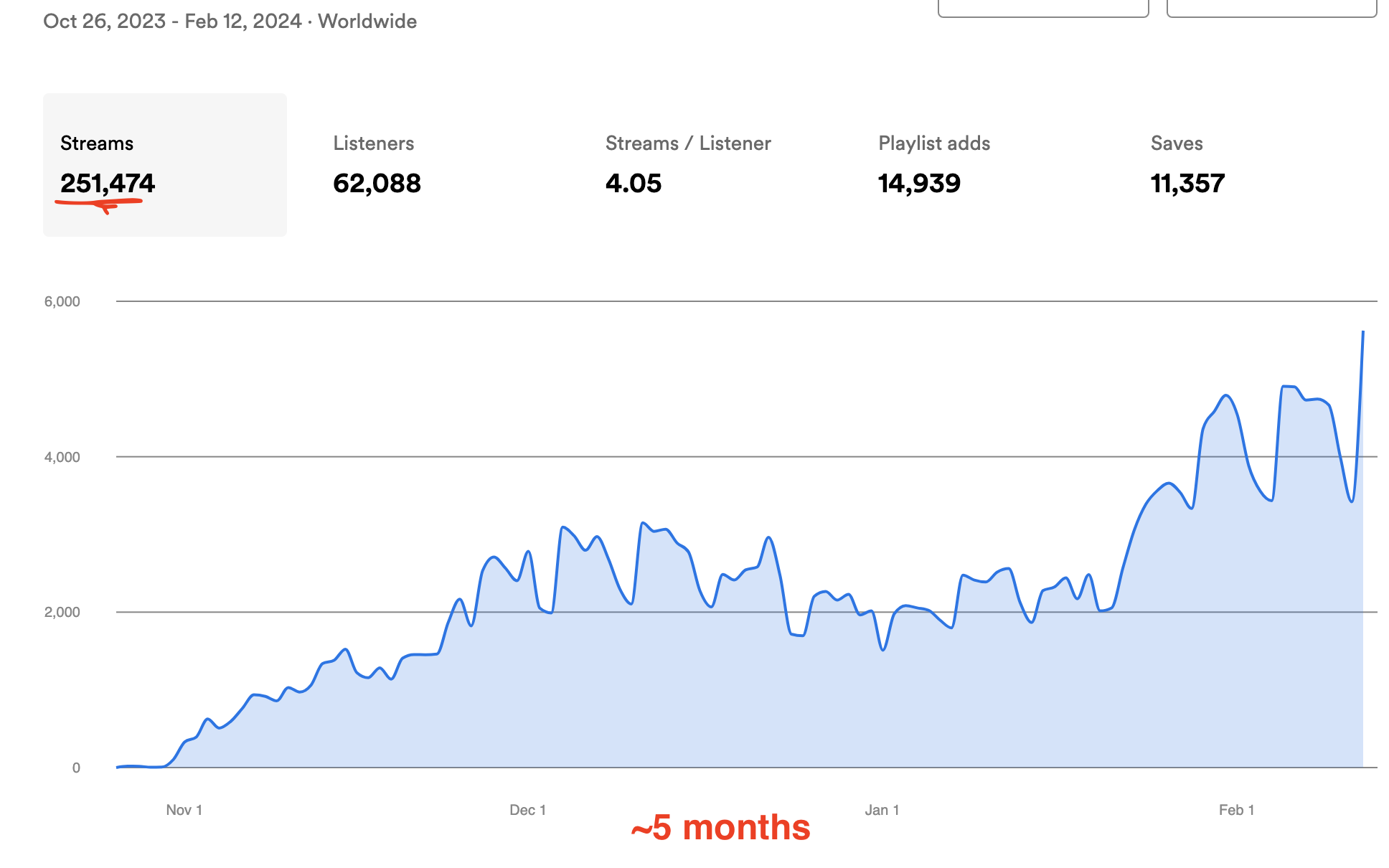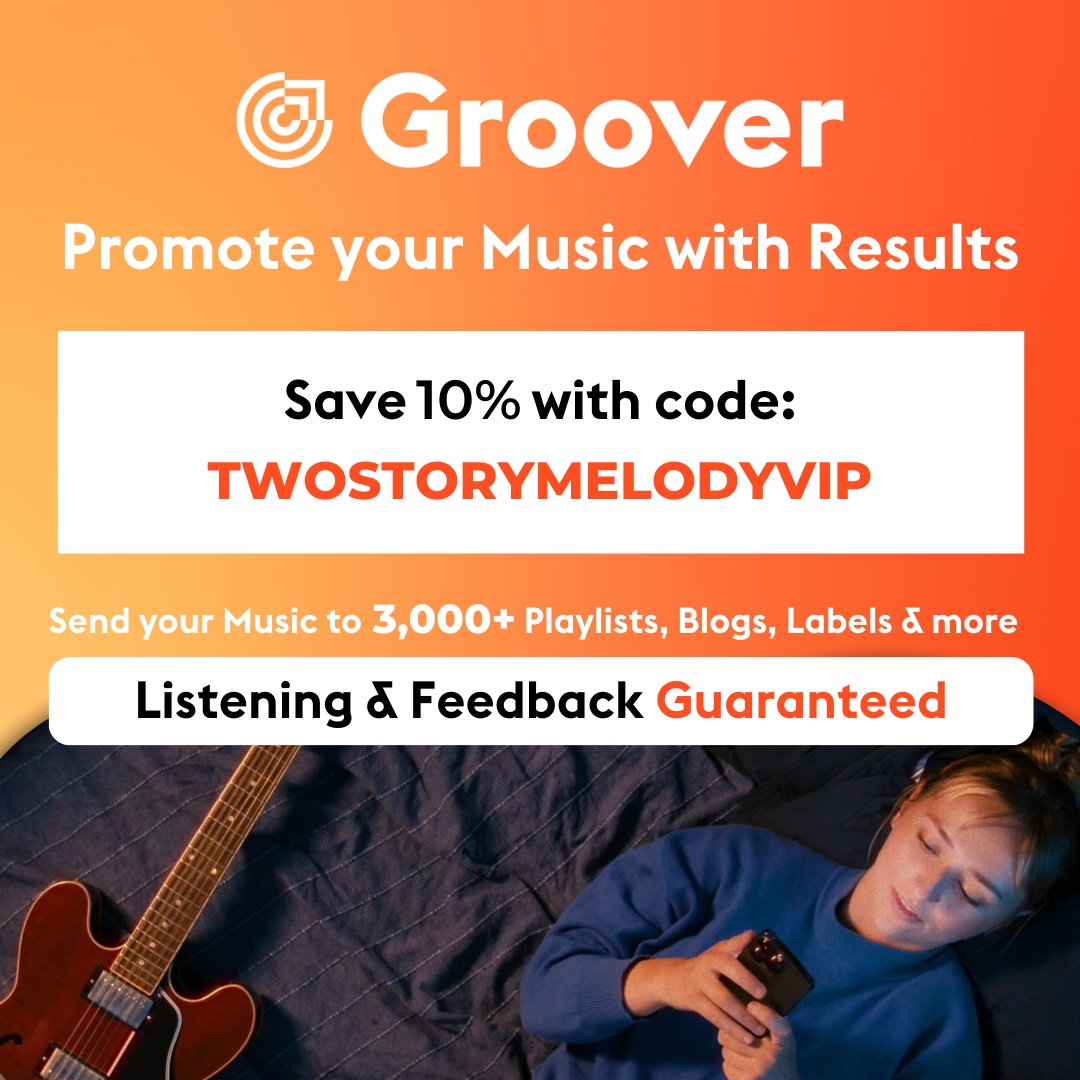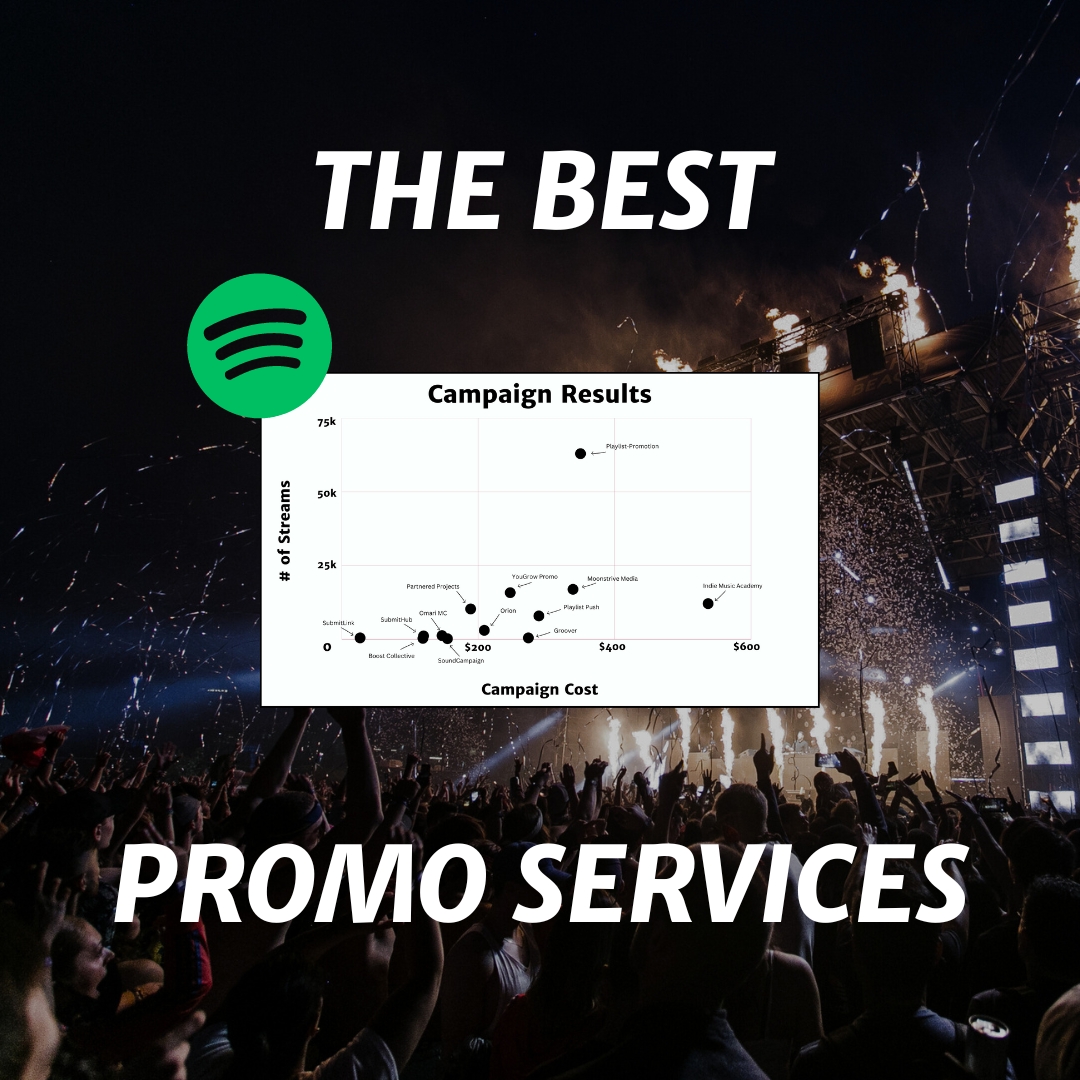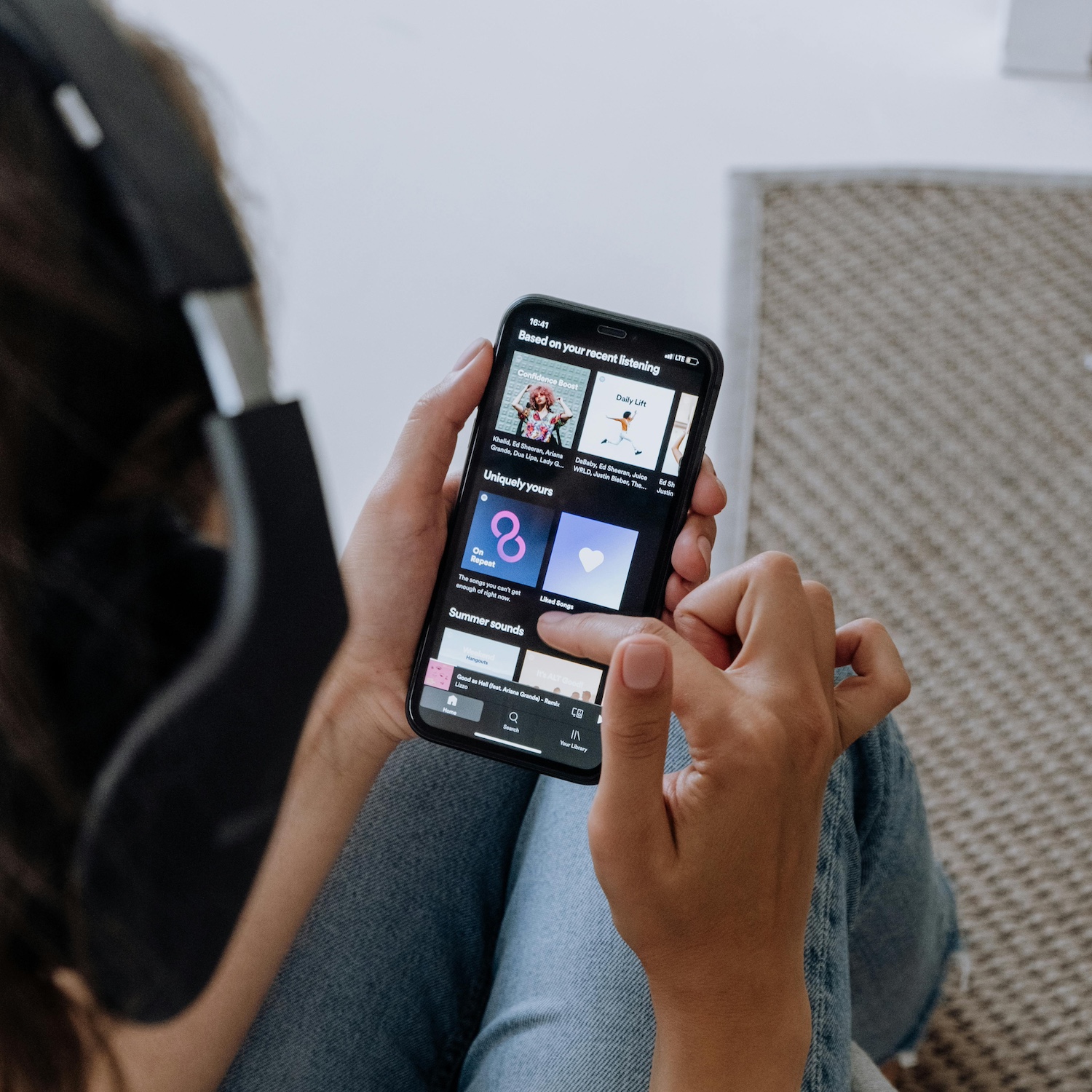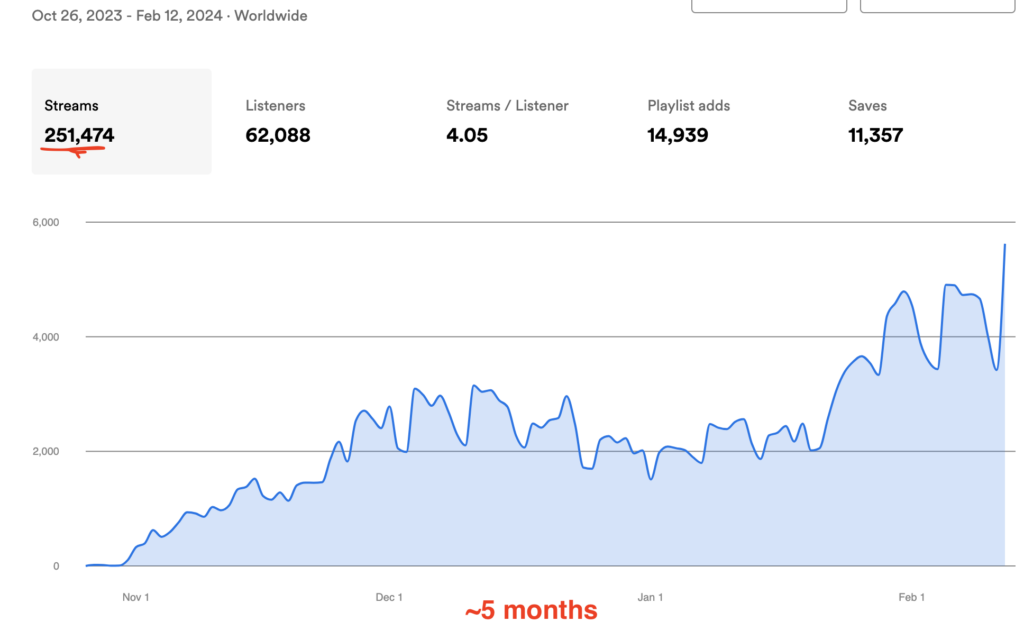It’s much easier to make art when you know that other people care about it.
Last week, I missed my Monday newsletter send for the first time in over a year. And after I finished the deep work of processing my guilt, I found myself wondering how in the world I’d been able to establish consistency in the first place.
I mean, I’ve started and stopped most of my “habits” over the years.
Like the time I committed to learning Spanish, then gave up after three days (no bueno). Or like this year, when I promised myself I’d produce a song every month, and now we’re four months in and I’m really very close to producing one, I promise.
What I’m saying is that, like most people, I find it much easier to plan for consistency than I do to actually carry it out. So, again…
How the heck did I write a newsletter every week for over a year?
And as I thought about it this past week, I realized that the answer is surprisingly simple:
Hypnosis.
That’s right. I’ve realized that I was able to persevere because on Sunday nights, I would sit at my kitchen table, my face obscured by strange shadows cast from a single yellow light, the rest of the apartment shrouded in darkness, and I would swing a small silver pocket watch slowly back and forth in front of my eyes.
“You will write that damn newsletter in the morning,” I’d whisper to myself softly. “You will. You will. You will.” Eventually, the world would grow dim, my eyes would get heavy, and my head would nod to my chest as I slumped into the warm embrace of the weathered kitchen chair my wife and I got from Goodwill.
And then I would wake up the next morning and feel strangely compelled to write something about music marketing.
So yeah, that was probably the secret. Either that or kale smoothies.
I’ll end the joke here. (Probably should’ve ended it five paragraphs ago, right?)
In all seriousness, here’s why I think I was able to be consistent with this newsletter:
I knew people were reading it.
That’s really it.
Trust me: I’ve created stuff, put it excitedly out into the world, and then gotten nothing back from the buzzing, gaping void of the internet. This is an awful feeling – it’s not just wasted effort, it’s like a refutation of something that you’d thought was your identity.
Like, imagine if a third-grader came home from school with a carefully-crafted crayon drawing of their family, something they’ve spent hours working on, something they’ve imagined proudly showing to their parents and putting on the fridge – and their mom takes one look at it and says, “Not much of an artist, are you?” and throws it away.
You think that kid’s going to be an artist when they grow up? You think they’re going to want to draw something tomorrow?
The truth is, deep down, we’re all still like that kid.
If nobody affirms us, our identities degrade. And the flip side is true, too: If we’re affirmed, our identities solidify.
I think the reason I still make music is because, when I was a kid, people told me I was a good singer.
And I’m pretty sure 90% of my ability to write a newsletter every week this past year came down to the fact that people replied to my stuff and told me they liked (and looked forward to) reading it.
The affirmation of an audience makes it so much easier to make art.
Here’s the problem, though:
In the beginning, nobody has an audience.
(Okay, fine, this isn’t true if you were a Disney Channel star cough Olivia Rodrigo cough – but it is true for the rest of us.)
When you start writing or making music or whatever, you’ve got your mom (hopefully) and maybe a few friends – but the broader world is probably unaware of you. So, almost inevitably, you will put stuff out and you will get mostly silence back.
There are, of course, ways to build a community faster. But there is almost no way to go from nothing to something overnight. Almost every time, you’ll start with a long period where it feels like nobody cares about your work.
I’ve written about this before and I keep finding it to be true. Check this out:

In descending order, those graphs represent website visitors to Two Story Melody, YouTube subscribers to Two Story Media, and followers of Tom’s Spotify profile – three different platforms, each following the same general growth curve.
Here’s how it feels:
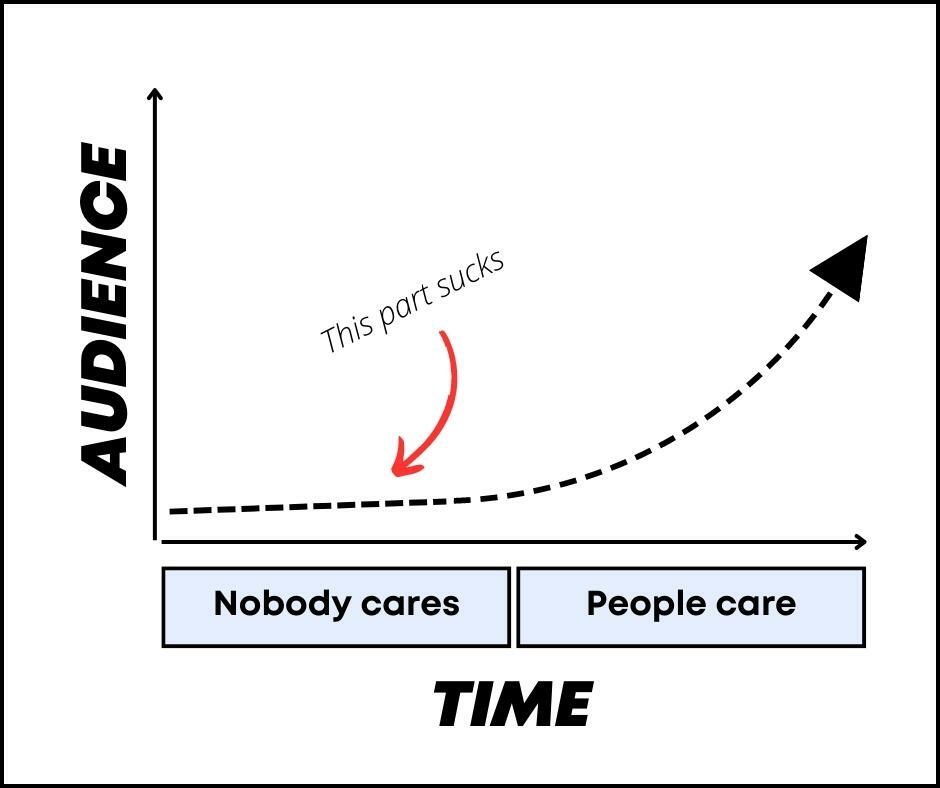
All right, here’s my whole point with all of this:
The sooner you can sense that people care about your work, the sooner you’ll be convinced to stick with it.
This is really important, because (as I’ve written before) if you want to succeed, you need to stick with it. I think consistency is the foundation for building an audience. If you get discouraged and give up before things get going – well, the upward growth never happens.
So there are two tricks:
1. Believe that what you’re doing matters and growth will come.
This is very hard, but you need to have faith and grit during the earliest stages. (And it helps a lot if you genuinely love what you’re working on.)
2. Get proof of positive feedback as soon as you can.
This is much more fun and it can happen in a variety of ways.
For my YouTube channel, for example, I got positive feedback by emailing this list and asking people to check it out before I’d earned anything on the platform itself. I still think my YouTube channel kind of sucks, but I no longer feel like I’m sending videos into the void, and that’s made it easier to make videos.
For Two Story Melody, I got positive feedback from the artists I interviewed, even though nobody else really read the articles I wrote for a few years.
And Tom’s fortunate enough to have had a small army of people who thought he was pretty awesome from the get go. Look at that graph up there again – as soon as he put out music, he immediately had like 170 followers. I’m sure that was helpful.
This pattern is true of pretty much all the successful artists I know.
They got early affirmation from a small community of people, that affirmation helped them to keep going, and over time they grew valuable fanbases.
I think you can do the same.
Don’t give up. There are going to be times when you’ll want to, but the only way you lose this game is if you stop playing.
Music matters. So be careful to celebrate each step of the journey – your wins and your learning – and be intentional in finding a community that can affirm your efforts.
And if that doesn’t work, try hypnosis.


